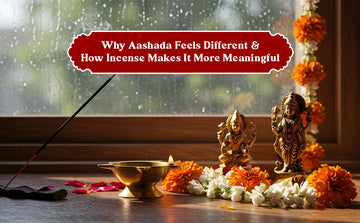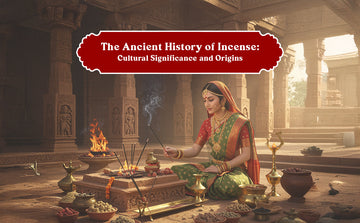Incense has been an integral part of Indian culture for thousands of years, symbolizing spirituality, purity, and devotion. Known as agarbatti, incense sticks are used in religious rituals, meditation, and daily practices to create a serene and sacred atmosphere. The fragrant smoke emanating from incense is believed to purify the environment and connect the earthly realm with the divine. This tradition, deeply rooted in Vedic practices, continues to shape the spiritual identity of India.
Incense plays a vital role in the religious practices of Hinduism, Buddhism, and Jainism:
-
: In Hinduism, incense is an essential offering during puja ceremonies. The aromatic smoke is believed to carry prayers to deities and purify the surroundings. Burning incense symbolizes self-sacrifice, as it transforms into ashes while spreading its fragrance. Specific numbers of incense sticks are burned to represent completeness (three for Brahma, Vishnu, Shiva) or balance (five for the elements: earth, water, fire, air, and space).
-
: In Buddhist traditions, incense is used during meditation and prayer to create a tranquil environment. It signifies mindfulness and devotion while helping practitioners focus on their spiritual journey.
-
: Jainism emphasizes offering incense as a devotional act that honors deities and fosters spiritual growth. This practice reflects reverence and commitment to ethical living.
Incense holds special significance during Indian festivals:
-
: Known as the festival of lights, Diwali celebrations involve burning incense during Lakshmi Puja. The fragrant smoke purifies homes and invites divine blessings.
-
: During this nine-day festival dedicated to Goddess Durga, incense is burned to enhance the sanctity of daily rituals.
-
: Beyond grand festivals, incense is a staple in everyday worship across Indian households. Its calming aroma creates a sacred ambiance for prayer and reflection.
India’s rich tradition of incense-making includes a variety of natural fragrances that hold symbolic and therapeutic value:
-
: Associated with purity and spirituality, sandalwood is widely used in temples and meditation spaces.
-
: Symbolizing love and devotion, jasmine enhances emotional well-being.
-
: Known for its luxurious aroma, agarwood represents prosperity and divine connection.
Other popular scents include rose for love, camphor for purification, and patchouli for grounding energy.
Many incense blends are crafted using Ayurvedic principles that align with the five elements—ether (fruits), water (stems), earth (roots), fire (flowers), and air (leaves).
Shop Our Best Incense
Kasturi Incense Sticks
Suwarn Sugandh Incense Sticks
Ramesht Incense Sticks
The tradition of burning incense remains a cornerstone of spiritual life in India. Whether during elaborate festivals like Diwali or simple daily rituals at home, incense serves as a bridge between the physical world and the divine. Its ability to purify spaces, calm minds, and elevate spiritual experiences ensures its enduring relevance.
As modern lifestyles evolve, many people are turning to organic or bambooless incense options that honor tradition while minimizing environmental impact. By embracing these age-old practices thoughtfully, Indians continue to preserve their cultural heritage while adapting to contemporary needs.
Lighting an incense stick is more than an act—it’s a gesture steeped in history, devotion, and mindfulness that binds generations together in shared spirituality.





